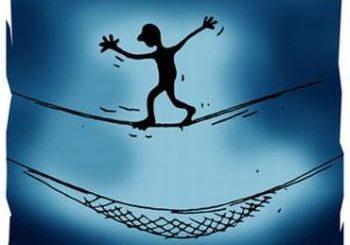Introduction
Kenyans are known as some of the most innovative people in Africa. Growth in Innovation should go hand in hand with intellectual property protection so that the innovators can be able to secure their inventions. Despite the increase in innovations we still have very low numbers of patents and copyrights applied and granted in Kenya with 132 patents applied by residents in 2014 and only 4 patents granted according to the World Intellectual Property Organization.
Technology innovations can be secured using copyrights, patents, trademarks and utility models. Commercialization of products and services created out of these innovations can be in form of direct sales or licensing models where the innovator can sell production rights to other entities. Competition and copy cats can also be kept at bay by having intellectual property in place as it acts as a barrier to entry for other players and therefore provides a first mover advantage to the innovator.
This essay explores the best way to rapidly and cost efficiently commercialize technology innovations in Kenya, how technology startups can strategically protect their inventions and offers recommendations on some of the current bottlenecks.
Essay
Technology Startup companies in Kenya are characterized by a young team mostly recent graduates who desire to offer a solution by creating technology based products. The idea behind a startup is to deeply understand the market, identify their ideal customer’s needs and quickly create solutions that the customer can then purchase. Normally these startups have a team that includes software developers and a sales and marketing team member. In understanding the market the general rule is to create a better, faster and cheaper product so that the ideal customer can switch from their current solution to the startup’s product or service.
The technology startups face numerous challenges ranging from lack of funds, lack of expertise, lack of mentors, competition from established brands and having an inexperienced team. It is no wonder then that most startups will fail even before they really start. There has been a deliberate effort to improve the startup’s environment by having accelerators setup based mainly in Nairobi with an aim at sifting through hundreds of startups in order to identify those that are investor worthy and there after equip these startups with requisite skills to increase their chances of success.
Due to the huge number of technology startups in Kenya the accelerator companies often will organize pitching competitions in order to shortlist the startups that they can then probe as they aim at getting a few to invest their time and resources in. One of the key questions that startup founders will be asked is in regard to any intellectual property that they own in relation to their product or service. Intellectual property protection can act as a barrier for entry and give the startup a market advantage since it will act as a barrier for others who may want to copy and compete. The intellectual property can be in the form of a patent protecting industrial designs, a trademark protecting the brand identity or a copyright protecting the software code. However the number of applications for intellectual property is on average about one hundred applications per year for patents. This means that even though there numerous inventions by these startups each day few of these have any form of intellectual property protection. In any market one of the few ways for startups to remain competitive and to attract investors is intellectual property protection.
Startup owners often fail to secure their intellectual property early in their business because of lack of knowledge and funds for legal costs involved. Ignorance feeds the perception that it would be almost impossible to secure intellectual property on a small budget. However this is untrue. It costs just about $12 to secure a copyright that protects software code. The Kenya Copyright board is responsible for copyright registration and infringement enforcement and their stall are able to guide a software developer on how to register their copyright at no fee. This means that any innovator can have copyright protection for their software code if they took time to learn how to file copyrights on their own and paid the requisite fees. The Kenya Intellectual Property Institute is responsible for filing patents and trademarks. It costs just about $120 to file a trademark application or a preliminary patent application. Patent applications are quite technical and often require a lot of research and knowhow on how to describe the inventions in order to have a better chance at having a successful application. There usually are patent examiners that are able to guide startup owners with inventions on how to do the patent applications on their own. This means that the startup owner can avoid the hefty legal fees at the infancy of their enterprise but still have protection of their intellectual property.
Having secured the intellectual property at the least cost the startup owners can now embark on selling their innovations. When one has intellectual property protection you have the option of licensing these innovations to larger enterprises that have the resources to build the products and introduce them to the market. The agreement would be that of revenue share or a one off payment where the startup receives a payment in exchange for their intellectual property.
The countries that top the charts in patent applications have intentionally made it easier for innovators to realize the value of protecting innovations. For Kenya to achieve her vision 2030 there are a number of deliberate steps that she needs to undertake. As a start the intellectual property departs in the government need to decentralize their services so that they reach the grassroots with their message on innovation protection. In that way startups that are being started by youths all over the nations will have the benefit of staying informed and being facilitated to realize the value of their innovative solutions.
Innovation starts at an early age and great products and services are displayed annually across the nation in secondary school science congress competitions. The teachers in these schools as well as the judges need to be well equipped in order to encourage and facilitate these exhibitors on a journey to protect and commercialize their inventions from an early age. In doing so we will be able to create more jobs, better services, more patents applied and growth of our economy. Our curriculum also needs to integrate Intellectual property basics in order to enlighten learners and offer them guidelines.
Finally when startup owners undertake the process of protecting their intellectual property without the costly services of lawyers and other consultants the journey is not easy but its worthwhile. The cost savings are enormous and the owners get to utilize the government services optimally. That said there is need to offer financial incentives for intellectual property protection both to the startup founders and intellectual property lawyers and other consultants. In this way the applications can be of high quality and the conversion rate for applied patents versus issued patents would rise tremendously. The financial incentives would help cover consulting costs, research costs and filing costs. The benefits for such a fund would be enormous since intellectual property is a great asset to any nation and provides a competitive advantage to the owners thereby leading to the growth of sustainable enterprises and high quality jobs creation.
References:
- World Intellectual Property Organization Statistical Country Profiles. (2016, June 26). Retrieved from http://www.wipo.int/ipstats/en/statistics/country_profile/profile.jsp?code=KE
- (2014). Digital Entrepreneurship in Kenya 2014. Retrieved from http://www.gsmaentrepreneurshipkenya.com/GSMA_KENYA-AR2014-060214-WEB-SINGLE-PGS.pdf download done on 1th July 2016




